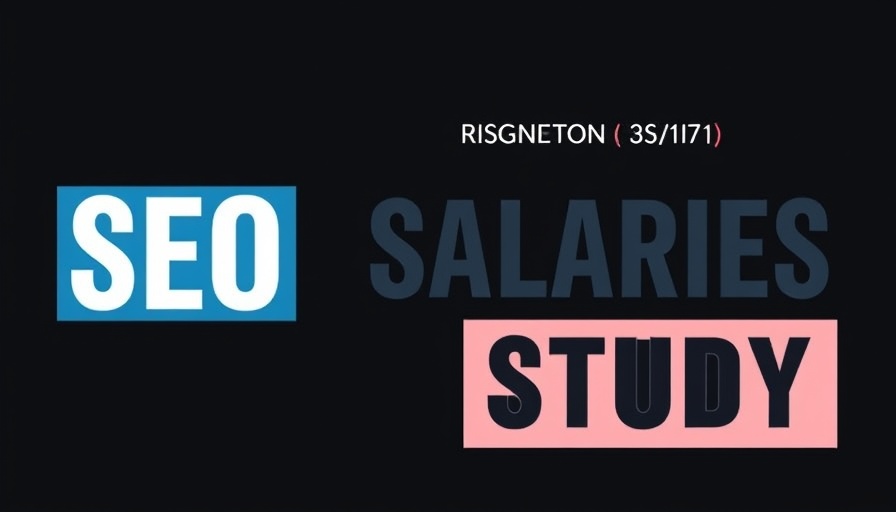
AI Mode Reporting: What It Means for Your Business
As Google prepares to roll out AI Mode reporting in Google Search Console, businesses should be ready to adapt to this evolving landscape. This feature will provide insights based on AI-driven analysis, offering deeper visibility into how AI impacts search performance. However, it’s important to understand that the detailed breakdown of this feature will not be available yet, which leaves marketers cautiously optimistic. By harnessing the power of AI in Search Console, you can fine-tune your strategies to align better with emerging trends and consumer behaviors.
Understanding Google Ads' New Documentation
In the recent announcement about updates in Google Ads, the company unveiled a new help document detailing how ads blend into AI-powered experiences. This documentation enhances transparency regarding how your ads may perform and be targeted in an AI-driven environment. As the complexity of AI increases, investing time in understanding these updates becomes crucial. The clearer your grasp of these features, the more effectively you can tailor your campaigns for optimum engagement and reach.
SEO Complaints: Live Broadcasting and Indexing Issues
The SEO community has been buzzing with complaints about Google’s indexing delays regarding live-broadcast content. Businesses that depend on timely updates and have invested in broadcasting should take heed of these trends, as John Mueller’s warnings about incorrect Indexing API usage echo through forums. Ensuring your content is indexed before it loses relevance is critical, making it essential to employ best practices when utilizing the Indexing API. Understanding these technicalities can save your business from missed opportunities.
Strategic Shifts in Google Ads Requirements
Great news for smaller businesses; Google Ads has decreased the customer list requirement to just 100 active visitors within 30 days for search campaigns. This shift allows more businesses to create targeted ads, thereby enhancing their outreach without needing a sizeable customer base. Small business owners should leverage this moment to refine their targeting strategies by experimenting with ad campaigns tailored to specific customer segments to see better results.
Innovative Changes in Google Shopping
In a move signaling Google’s ongoing transformation, a new menu is being tested in Google Shopping to enhance user experience. This shift is not just cosmetic; it aims to provide customers with a more streamlined approach to shopping. Understanding how these changes can affect consumer behavior is critical for marketers. Creating targeted campaigns that align with these new avenues could significantly boost your visibility and customer engagement.
As trends in AI and digital marketing continue to evolve, staying informed is vital. The changes we see today—from the rollout of AI Mode reporting to Google Ads updates—will shape how your business interacts with consumers moving forward. By adapting swiftly and strategically, you’ll be equipped not only to survive but thrive in this dynamic environment. Your next step? Consider researching how other businesses are implementing AI in their strategies to find potential efficiencies within your operations.
 Add Row
Add Row  Add
Add 




Write A Comment